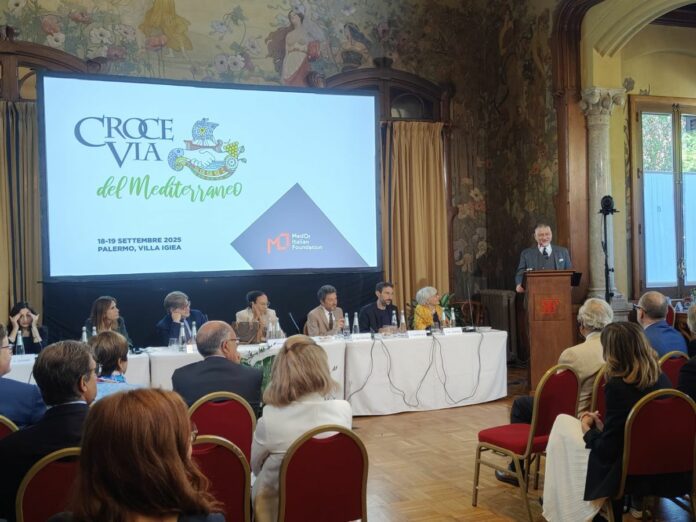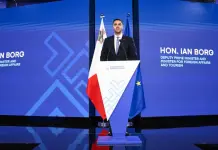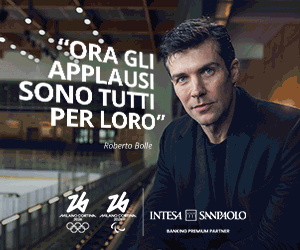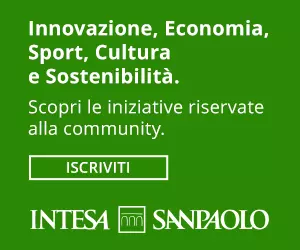PALERMO (ITALPRESS/MNA) – “Two wars – one in the heart of Europe, the other in the Mediterranean – are clear signals of the end of the old world order. To achieve a stable and lasting peace, a new order must be built, and without the South this will never be possible. At a time when hard power seems to prevail, there is a growing need for actors with effective soft power. MedOr aims to serve as such a platform, promoting dialogue and cooperation in a world too often dominated by the logic of force.”
This was stressed by the International Board of the MedOr Italian Foundation in a statement following its second meeting, held in Palermo two years after the first, bringing together prominent voices from 29 countries.
“Italy and the Mediterranean are central to this mission,” the Board continued. “Geography and history make Italy a natural meeting point between the West and the South. This is also the deeper meaning of a long-term programme that will take us to 2027, marking the 1,400th anniversary of the arrival of the Arabs in Sicily. Our vision is rooted in action. Through training initiatives, the Virtual Academy, and a new educational plan for Africa, MedOr invests in higher education and skills across the wider Mediterranean. In this way, we are building concrete forms of cooperation at the local level, sector by sector, from agriculture to cybersecurity.”
“As a further step, we are creating bilateral dialogue platforms throughout the Mediterranean, opening an office in Africa and, in the near future, expanding to the Gulf Cooperation Council and Latin America. This choice to look toward South America reflects our broader commitment to the Global South and is part of a long-term investment in mutually beneficial regional partnerships,” the International Board added.
Following Wednesday’s meeting, MedOr also hosted the international conference “Palermo, Crossroads of the Mediterranean”, which concluded today with an address by Marco Minniti. According to the Foundation’s president, to avoid a major own goal, the West “must understand that relations with the Global South cannot be left to China and Russia: this would mean abandoning its role. By maintaining this relationship, Italy would give Europe crucial support.”
Minniti stressed that “the European Union, while focused on developments in Ukraine, must also recognize the red thread linking that war to the Mediterranean: in today’s world everything is deeply interconnected. What happens in the North has an impact on the South, and vice versa.”
“For Palermo, it is natural to act as a bridge between the two shores of the Mediterranean,” the former Interior Minister added. “This is Italy’s historic and political mission: to serve as a junction between the West and the Global South. At this time, such a junction is essential, because with one war in the heart of Europe and another in the Mediterranean, it is clear that the old world order is ending, and a new one must be built. Without the South, this is impossible. In its role as a meeting point, Sicily has a political, economic, and relational opportunity – it regains its historic role.”
On the final day of the three-day programme of events and meetings organized by MedOr in Palermo, the central theme was cultural heritage, with the participation of Minister Alessandro Giuli. “MedOr inspired part of the cultural dimension of the Mattei Plan,” Giuli noted. “It is a fundamental reference point for education, research, and study – not only to address distressing conditions such as wars, but also in terms of cultural diplomacy. Multilateral relations with the countries of the wider Mediterranean form the foundation of what we like to call Eurafrica. Thanks to events like this, my ministry will be able to cooperate more effectively with institutions in other countries. The Maxxi Med was created precisely to build bridges, a fundamental aspect of Mediterranean culture: we must act as bridge-builders of a relationship that has existed for millennia.”
Among those who highlighted the role of culture in the Mediterranean was Marco Betta, superintendent of the Teatro Massimo: “Our mission is to produce not only performances but also reflection. The Mediterranean speaks a thousand different languages and tells different stories, yet all its peoples are united through culture and art. Our goal – also as Teatro Massimo – is to reaffirm the centrality of culture across the Mediterranean.”
Pietrangelo Buttafuoco, president of the Venice Biennale, pointed to two countries capable of playing a leading role in this mission: “Italy and Morocco, given their historic roles, can spearhead cultural promotion throughout the Mediterranean. For China and the Americas, it is merely a sea of transit, while for us the goal must be to build bridges rather than raise walls”.
According to Simonetta Giordani, secretary general of the Civita Association, strengthening culture must start with small towns, particularly through “revitalizing those depopulated across the country: villages can become places of training and skills-sharing to give memory a future. Today’s reality shows us a culture under pressure, yet always with a great transformative power: we must build overall sustainability for cultural practices, including their economic dimension. Only then can we project the Mediterranean into a future of technological innovation”.
-Photo xd8/Italpress-
(ITALPRESS).















